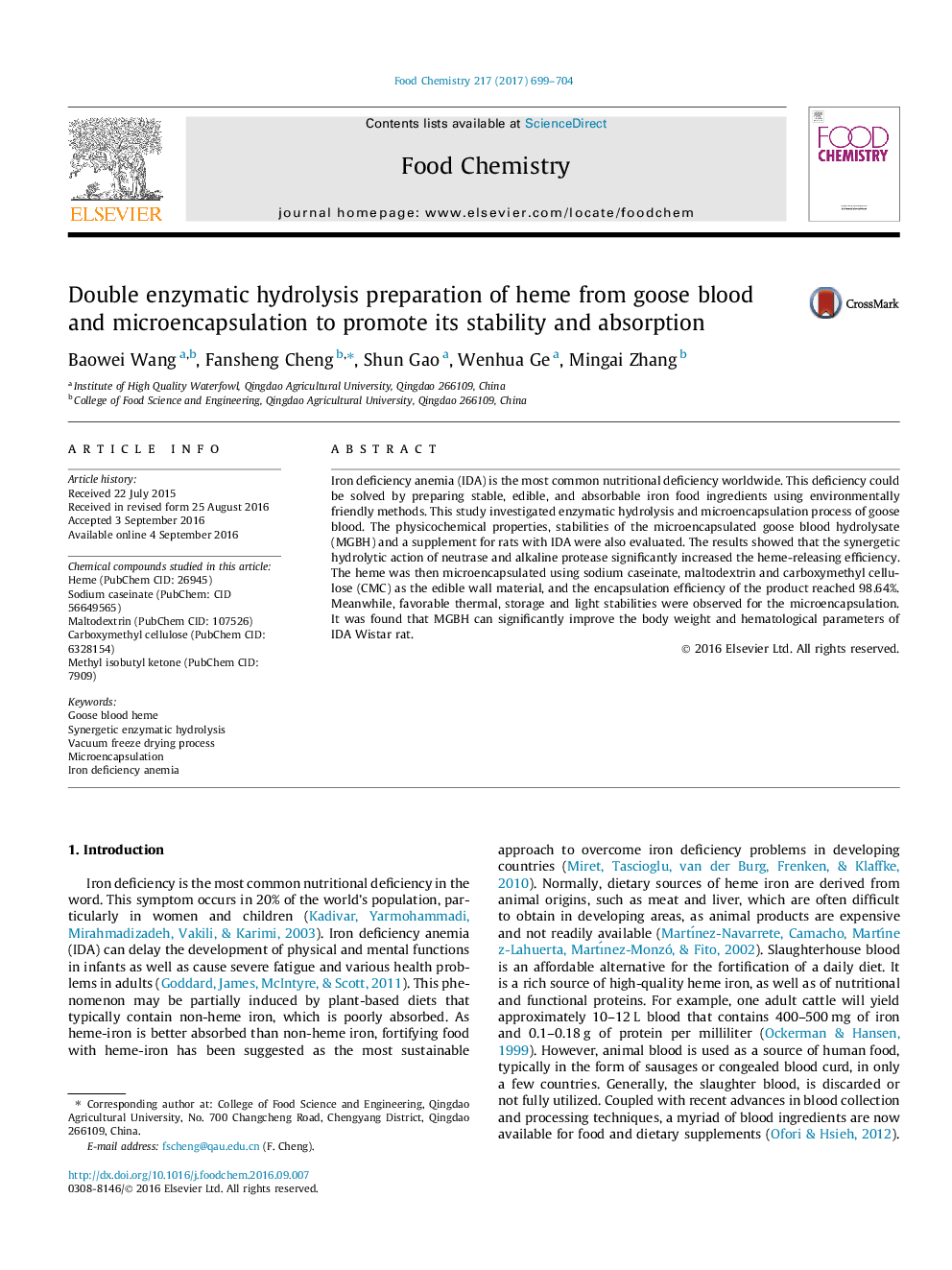| Article ID | Journal | Published Year | Pages | File Type |
|---|---|---|---|---|
| 7586808 | Food Chemistry | 2017 | 6 Pages |
Abstract
Iron deficiency anemia (IDA) is the most common nutritional deficiency worldwide. This deficiency could be solved by preparing stable, edible, and absorbable iron food ingredients using environmentally friendly methods. This study investigated enzymatic hydrolysis and microencapsulation process of goose blood. The physicochemical properties, stabilities of the microencapsulated goose blood hydrolysate (MGBH) and a supplement for rats with IDA were also evaluated. The results showed that the synergetic hydrolytic action of neutrase and alkaline protease significantly increased the heme-releasing efficiency. The heme was then microencapsulated using sodium caseinate, maltodextrin and carboxymethyl cellulose (CMC) as the edible wall material, and the encapsulation efficiency of the product reached 98.64%. Meanwhile, favorable thermal, storage and light stabilities were observed for the microencapsulation. It was found that MGBH can significantly improve the body weight and hematological parameters of IDA Wistar rat.
Related Topics
Physical Sciences and Engineering
Chemistry
Analytical Chemistry
Authors
Baowei Wang, Fansheng Cheng, Shun Gao, Wenhua Ge, Mingai Zhang,
